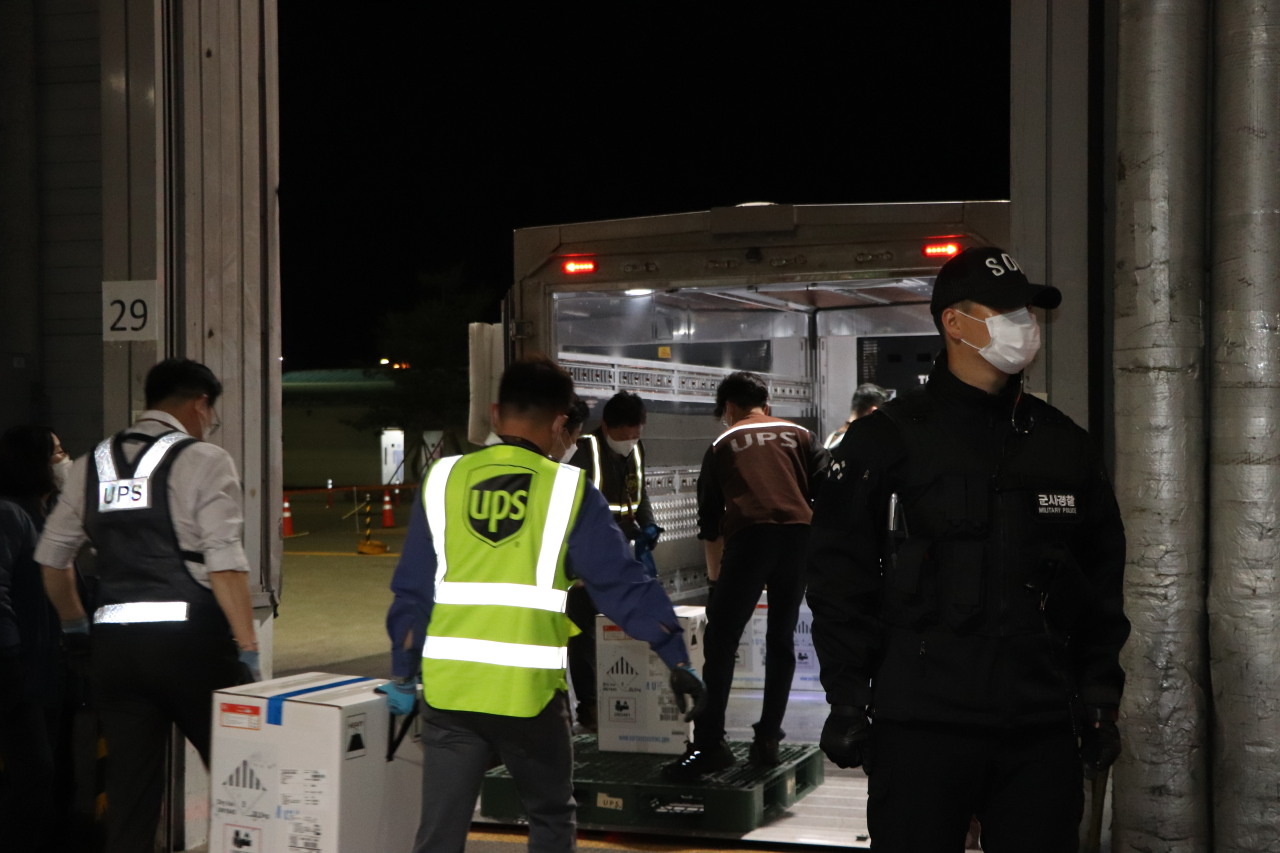A vaccine shortage is stalling Korea’s progress toward herd immunity. Koreans now in line for vaccination -- those aged 65 and up -- have to wait until the last week of May to get their first dose as second doses being are prioritized, health officials said Wednesday.
As new vaccination appointments at around 2,000 clinics across the country have been canceled, a senior Ministry of Health and Welfare official Yoon Tae-ho told a press briefing that vaccine shipments were “on their way to Korea on time.”
“We are bringing in vaccines according to the plan,” he said, asking the public to “trust in the government” in its efforts to return to normalcy as quickly as possible.
From the health minister to the acting prime minister, officials in top offices have refused to acknowledge the inoculation drive in the country was slow.
“There is no vaccine shortage,” said Hong Nam-ki, the acting prime minister, in a statement on April 26, just three days before first-dose inoculations of Pfizer vaccine supplies ran low. The vaccination program is “running like clockwork,” he said.
According to the Korea Disease Control and Prevention Agency data, 6,029 first vaccine doses were administered in the country on Tuesday, down by over 2,000 from 8,341 a day prior. The total number of first doses given so far is 3,692,628.
The number of Koreans who have been fully vaccinated -- receiving both shots -- reached 664,813, or 1.3 percent of the entire population.
The two vaccines currently being deployed in Korea are from AstraZeneca and Pfizer, both of which require two vaccinations for maximum protection. The recommended interval between the first and second dose of AstraZeneca’s vaccine is 12 weeks, and three weeks for Pfizer’s.
As of Tuesday there were 195,000 doses of AstraZeneca’s vaccine and 578,000 doses of Pfizer’s remaining in Korea, according to the latest figures provided by the government’s task force for vaccine introduction.
In a message to reporters Wednesday, the task force said that Koreans can expect a jump in the delivery of doses in the upcoming weeks.
The task force said 438,000 more doses of Pfizer’s vaccine arrived in the country on Wednesday morning. In addition, COVAX, a World Health Organization-backed facility for equitable vaccine distribution, was due to supply 835,000 doses of AstraZeneca’s vaccine on Thursday.
These new additions to the vaccine stockpile will be used to complete second-dose vaccinations over the month, the task force said. The next delivery will arrive in early June.
The task force added that Novavax’s delay in receiving an authorization request for its vaccine candidate “won’t pose a problem for Korea.” The company announced Tuesday that it won’t be seeking authorization in the US and Europe until July at the earliest.
Korea has finalized a deal with Novavax to secure 40 million doses of their vaccine, which the government had earlier said will be produced locally as early as next month for use here.
The impact of the vaccine rollout has yet to manifest in terms of hospitalizations and fatalities, with just slightly over 1 percent of Koreans having completed vaccinations.
As of Tuesday at midnight, 167 patients with COVID-19 were in intensive care units, with five deaths recorded on the same day. In late November to early December last year, when Korea was counting patient numbers similar to those being reported now, there were between 70 and 110 patients in ICUs. The number of fatalities occurring per day were less than 10.
Korea confirmed 635 more cases of COVID-19 on Wednesday, resulting from 78,498 tests. Over the last seven days, an average of 567.5 cases were registered daily.
Despite the slow vaccination rate, President Moon Jae-in said in an address Monday that the November deadline for herd immunity will be moved up.
“More than 13 million will be vaccinated by the end of June. Before October, all Koreans who are eligible will have gotten at least a single injection,” he said, adding that his administration would “seek to get to herd immunity even faster than the initial aim of November.”
Meanwhile, the main opposition faction says it would step in to get more vaccines into the country. The People Power Party said in a Wednesday statement that it plans to fly delegates to the US to speed up the vaccine delivery and hopefully even procure extra supplies.
By Kim Arin (
arin@heraldcorp.com)




![[Weekender] Korea's traditional sauce culture gains global recognition](http://res.heraldm.com/phpwas/restmb_idxmake.php?idx=644&simg=/content/image/2024/11/21/20241121050153_0.jpg)



